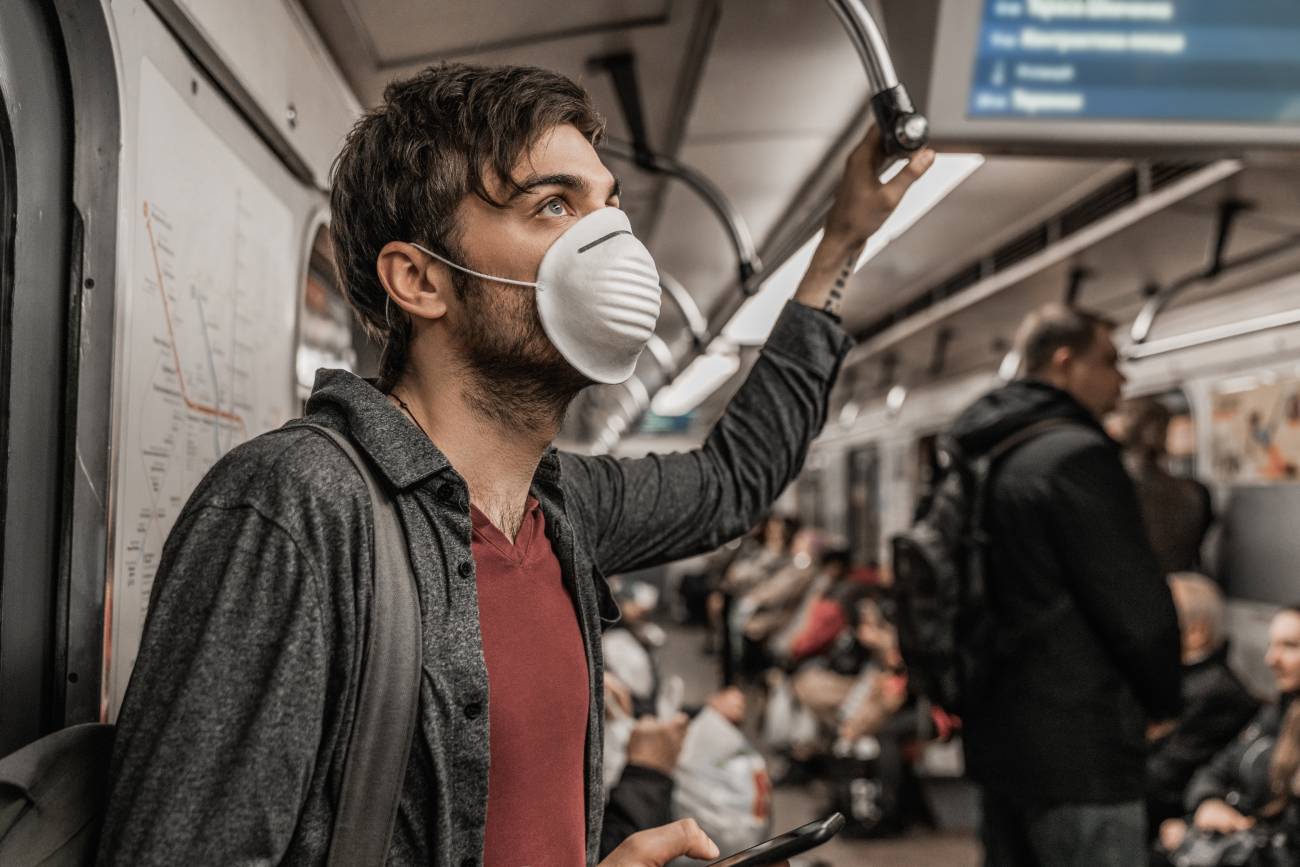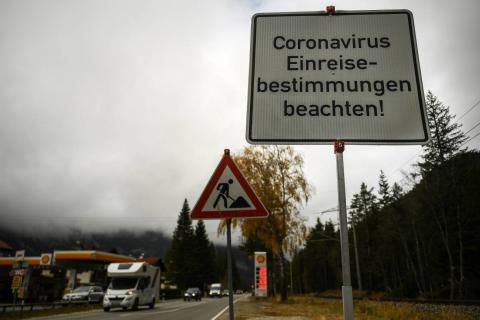Reactions on the desirability of maintaining the mandatory use of face masks on public transport
The Minister of Health, Carolina Darias, responded yesterday in the government control session in Congress to a parliamentary question that face masks will continue to be obligatory on public transport. According to Darias, the Alerts Committee justifies the measure "due to the high concentration of people in very small spaces, without adequate ventilation and on long journeys".

Voro Peiró - mascarilla metro
Salvador Peiró
Epidemiologist, researcher in the Health Services and Pharmacoepidemiology Research Area of the Foundation for the Promotion of Health and Biomedical Research of the Valencian Community (FISABIO) and Director of Gaceta Sanitaria, the scientific journal of the Spanish Society of Public Health and Health Administration (SESPAS)
In the current context -decreasing incidence despite the absence of measures, including the generalised absence of masks; a relatively calm healthcare system; most of the population with hybrid immunity and relatively recent due to the wave of BA.5 this summer; no new variants capable of displacing BA.5 seem to be in sight for the time being- masks in public transport should contribute very little in terms of the population.
There is still sufficient transmission to maintain the recommendation of use (not obligation) in any enclosed space with crowds of people, especially thinking of the elderly and vulnerable and, in the same sense, in health centres.
In any case, more emphasis should be placed on maintaining cross ventilation, an aspect that may be in conflict with energy saving strategies and which, with the return to school and work, will probably be more important than masks in transport.
Pedro Gullón - mascarillas metro
Pedro Gullón
Social epidemiologist and doctor specialising in preventive medicine and public health at the University of Alcalá
Mandatory facemask wearing on public transport is unlikely to have any great effect on covid-19 transmission at present, when it is the only place where it is mandatory. It is inconsistent that, with all the recovered activity and activities with the potential to be supercontagious events taking place every week, it should be maintained on public transport. Moreover, its use is declining quite a lot and when the population does not accept a measure it can end up falling by itself.
On the other hand, I am extremely concerned that a government that cares about public health does not put climate change and a transport transition to healthier options at the heart of its policies. This means investing in getting more people to use public transport and not publicly portraying it as a place of risk, when the data says that, compared to other places, public transport is not the most spread out place.
Ignacio Rosell - mascarillas metro
Ignacio Rosell
Specialist in preventive medicine and public health at the University of Valladolid
- It should be remembered that public transport is not optional for many people, like going into a bar or a place of leisure, but is a public service that many vulnerable people are also obliged to use when travelling.
- The fact that at the present time it may be considered reasonable to lift this measure does not in any way imply that its reintroduction could not be envisaged, perhaps in the short term, given the timing of previous waves. Hopefully it will not be necessary, but it cannot be ruled out.
- It is not a measure that is exclusive to Spain. Other countries in our environment still have in force the obligation to wear masks on public transport, regardless of their greater or lesser compliance.
- And in this sense, the issue of non-compliance seems to me to be a very relevant aspect: it would be highly inadvisable if disaffection with this measure, which is perceived as not very justifiable by a growing sector of the population, were to end up leading to non-compliance by the majority. This situation could set a dangerous precedent for future measures whose application could be more relevant in the face of this pandemic or future pandemics. In public health, these sociological impacts must also be assessed.
- Finally, I hope that a good awareness-raising campaign will help people with symptoms who need to use public transport to get used to wearing a mask and that this will be seen as normal, as has been the case for years in some countries. And also respect for the free decision to wear a mask by those who wish to do so.
My conclusion is that, at the current time of low recorded incidence of covid-19 and low pressure on the health system, it would seem reasonable to lift the measure making it compulsory to wear a mask on public transport.
But I think it is important to qualify this option with the previous points, which I suggest you reread. All of them.
Rafa Cofiño - mascarillas metro
Rafael Cofiño
Associate Professor at the Andalusian School of Public Health.
Measures should always be proportionate to the risk situation. It must be clearly explained to the population why masks are kept indoors only and not in other areas. To help ensure compliance, the measures must be understood by the public.
We also need to be a bit more rigorous about "let the experts advise". Many of the measures have been political, with more or less technical recommendations, but political. We should not be afraid to say that and we should not abuse the catchphrase "the experts" to exempt decision-making. These, in essence, must have a very high scientific and evidence-based component.
Most importantly: more than individual protective measures (masks), I am concerned about the poor or absent regulation of protective environment measures (ventilation). I am not denying the need for the use of masks in certain situations, but I find it incredible that we have made almost no progress in the regulation of protective spaces. We continue to put the onus on the individual instead of looking for rules and regulations for healthy spaces and environments.



